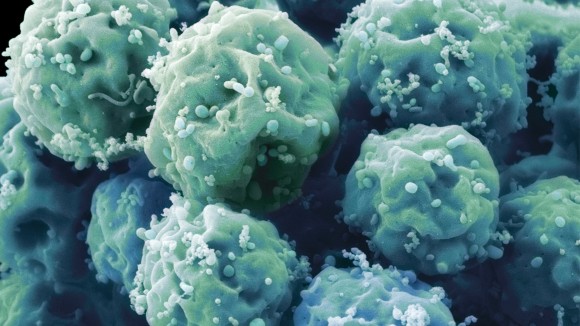 Cesario V. Borlongan is a distinguished Professor and Vice-Chairman for Research at USF Morsani College of Medicine’s Department of Neurosurgery and Brain Repair, and Director of the USF Center of Excellence for Aging and Brain Repair. His research interests include pathological examination of the role of impaired mitochondria, splenic response, and gut dysbiosis in the inflammation-plagued secondary cell death that accompanies stroke and traumatic brain injury. In addition, he probes the potential of stem cells in rescuing the mitochondria, silencing the splenic reaction, and normalizing the gut microbiome towards sequestration of both central and peripheral inflammation. Altogether, his strategy is to understand the pathological condition of CNS disorders with a focus on inflammation and its treatment with stem cell-based regenerative medicine. Prof Borlongan has been an Editorial Board Member for Scientific Reports since 2019.
Cesario V. Borlongan is a distinguished Professor and Vice-Chairman for Research at USF Morsani College of Medicine’s Department of Neurosurgery and Brain Repair, and Director of the USF Center of Excellence for Aging and Brain Repair. His research interests include pathological examination of the role of impaired mitochondria, splenic response, and gut dysbiosis in the inflammation-plagued secondary cell death that accompanies stroke and traumatic brain injury. In addition, he probes the potential of stem cells in rescuing the mitochondria, silencing the splenic reaction, and normalizing the gut microbiome towards sequestration of both central and peripheral inflammation. Altogether, his strategy is to understand the pathological condition of CNS disorders with a focus on inflammation and its treatment with stem cell-based regenerative medicine. Prof Borlongan has been an Editorial Board Member for Scientific Reports since 2019.
 Patrizia Ferretti is Professor of Regenerative Biology at UCL Great Ormond Street Institute of Child Health, London, UK. She has a long-standing interest in mechanisms governing tissue regeneration within the context of normal and abnormal development of the nervous system and of craniofacial structures. Her current work is focused on the modelling of human congenital diseases using stem cells, which continues to implement the successful strategy of addressing basic biological questions and harnessing the information acquired to develop new therapeutic approaches to repair diseased or damaged human tissues in collaboration with material scientists, bioengineers and clinicians. Prof Ferretti has been an Editorial Board Member for Scientific Reports since 2015.
Patrizia Ferretti is Professor of Regenerative Biology at UCL Great Ormond Street Institute of Child Health, London, UK. She has a long-standing interest in mechanisms governing tissue regeneration within the context of normal and abnormal development of the nervous system and of craniofacial structures. Her current work is focused on the modelling of human congenital diseases using stem cells, which continues to implement the successful strategy of addressing basic biological questions and harnessing the information acquired to develop new therapeutic approaches to repair diseased or damaged human tissues in collaboration with material scientists, bioengineers and clinicians. Prof Ferretti has been an Editorial Board Member for Scientific Reports since 2015.
 Paolo Madeddu is a full Professor in Cardiovascular Experimental Medicine at the University of Bristol. He obtained his MD in 1976 at the University of Sassari (Italy) and in 1980 became Specialist of Cardiology at the same University. He worked as a Senior Consultant at the Internal Medicine Department and was Chief of the Regenerative Medicine Center in Osilo and Porto Conte Ricerche until 2005. His research is focusing on new solutions to cardiovascular repair and rejuvenation, using gene therapy, protein therapy, and tissue engineering. He has received a substantial contribution to this research from the Medical Research Council, the British Heart Foundation, Heart Research UK, Diabetes UK, JDFR, and the European Community. Prof Madeddu has been an Editorial Board Member for Scientific Reports since 2015.
Paolo Madeddu is a full Professor in Cardiovascular Experimental Medicine at the University of Bristol. He obtained his MD in 1976 at the University of Sassari (Italy) and in 1980 became Specialist of Cardiology at the same University. He worked as a Senior Consultant at the Internal Medicine Department and was Chief of the Regenerative Medicine Center in Osilo and Porto Conte Ricerche until 2005. His research is focusing on new solutions to cardiovascular repair and rejuvenation, using gene therapy, protein therapy, and tissue engineering. He has received a substantial contribution to this research from the Medical Research Council, the British Heart Foundation, Heart Research UK, Diabetes UK, JDFR, and the European Community. Prof Madeddu has been an Editorial Board Member for Scientific Reports since 2015.
 Masahiro Tsuji is a Professor at the Department of Food and Nutrition at Kyoto Women’s University. Before this, he was laboratory chief at the National Cerebral and Cardiovascular Center, Osaka. His research interest includes both cell therapies and nutritional approaches for neonatal brain damages. Prof Tsuji has been an Editorial Board Member for Scientific Reports since 2014.
Masahiro Tsuji is a Professor at the Department of Food and Nutrition at Kyoto Women’s University. Before this, he was laboratory chief at the National Cerebral and Cardiovascular Center, Osaka. His research interest includes both cell therapies and nutritional approaches for neonatal brain damages. Prof Tsuji has been an Editorial Board Member for Scientific Reports since 2014.

